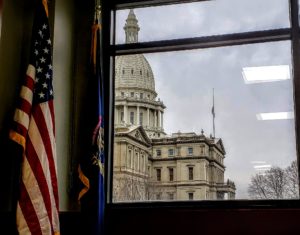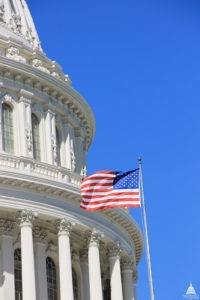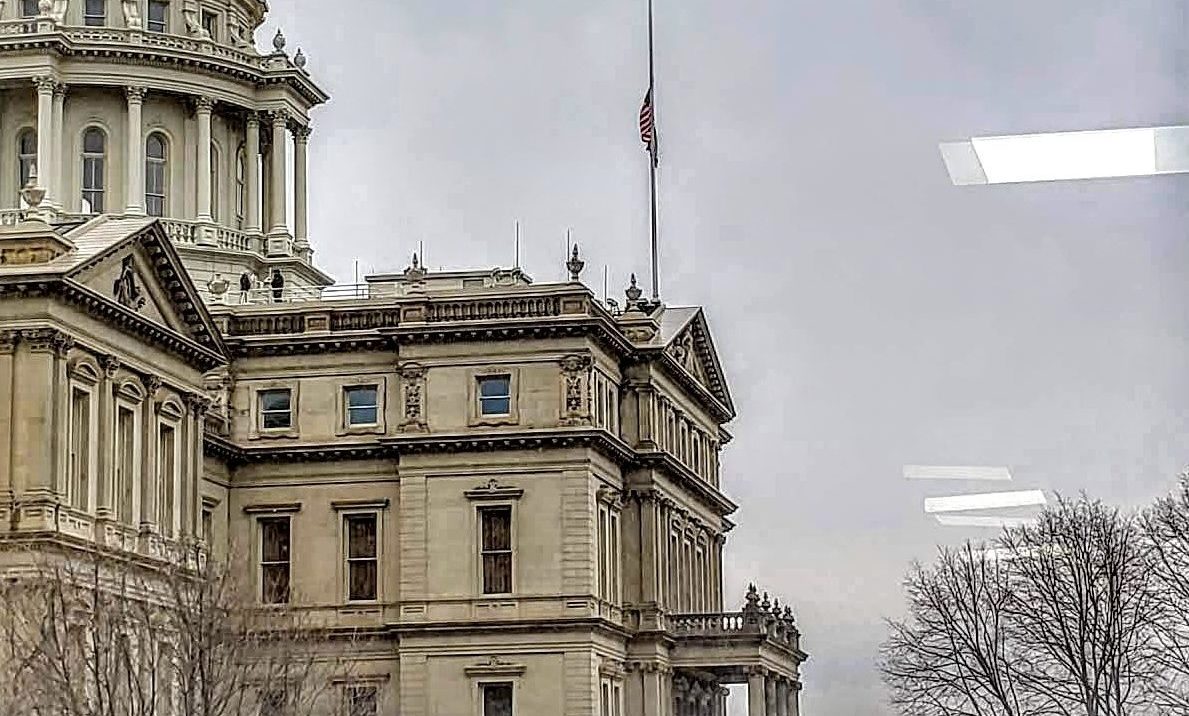By Paul Rozycki
Two days.
That’s all it took for the horrific shooting at Michigan State University to become old news and be replaced by the newest shootings. In the two days following the Feb. 13 shooting that killed three MSU students, sent five to the hospital, and dominated the state and local news, the nation saw four more mass shootings—three on Feb. 14 and one more on Feb. 15. By the end of the weekend there were ten more reported mass shootings.

MSU’s logo (Photo source: MSU’s website)
On the first day of 2023—New Year’s Day, there were seven mass shootings, and by Feb. 20, there were at least 82 mass shootings in the U.S.
Internationally, the U.S. dramatically exceeds most other nations in mass shootings and suicides.
Like the sports and weather reports, it seems the daily mass shooting story has become a standard part of the nightly newscast.
Impact on students (and everyone else)
The impact of this on all of us is overwhelming. Obviously those who have been shot or injured and their families will have their lives altered forever. But even those who were present and weren’t physically injured will carry the trauma of the shootings for a long time.
What is the lasting impact on those students who regularly go through ‘shooter drills’ in their classrooms, knowing they could be the next target of a mass shooting? What is the impact on everyone else who goes to a shopping mall or any public event, wondering where the next mass shooting will take place?
It’s changed a lot of routine behavior as well. A few weeks ago, as I was entering the “Chrome and Ice” car show at the Dort Event Center security asked if I was carrying a gun. (Since I hadn’t planned on machine gunning a ’69 Corvette, I answered no.)
What can be done?
In the past the typical public reaction to mass shootings has been predictable.
First, we hear of the shooting. Then, we offer ‘thoughts and prayers’ to those affected. Then, there is a brief discussion of ‘doing something’—perhaps stricter gun control legislation. Then, everything is forgotten as the next news story—perhaps another shooting—takes place, and the process repeats. It’s easy to be cynical about prospects for any meaningful change in our gun culture.
It’s possible that will be the story of the shooting at MSU. But there is a little hope that things just might be different this time. Students, faculty, and staff have organized protests at the capitol in Lansing, and they seem serious about keeping the pressure on. Gov. Gretchen Whitmer has proposed several pieces of legislation on gun control. After the MSU shootings she said, “The time for thoughts and prayers is over” as she called for action on the gun issue.

The Michigan Capitol building in Lansing seen from the State Senate building. The flag is half-staff a day after the MSU shooting. (Photo by Tom Travis)
Support for stricter gun laws was part of her reelection campaign last year and she is supporting what she calls “common sense” gun laws that would include universal background checks when buying a firearm, red flag laws that would remove guns from to those who might harm themselves or others, and safe storage requirements for those who own guns.
With a slim Democratic majority in the state House and Senate, it’s possible that those modest measures might become law. But she can’t afford to lose a single Democratic vote and Republicans and pro-gun lobbyists have already said they would initiate recall campaigns against anyone who votes for the gun control measures. That could be a real threat for Democrats in marginal districts. Will some Republicans support her measures, particularly if they include some provisions for dealing with mental health issues? It’s possible, but gun control has been a hard sell for many years.
Yet, even if all those measures become law, will they change the pattern of gun violence?
Guns in the United States, the 2nd Amendment, and the NRA
Except for a few nations in the midst of civil wars, the U.S. is unique in our gun culture. We have more guns in the country than people—perhaps 400 million guns in a nation of 330 million. Every time there is a serious attempt at gun control sales of guns shoot up. We also have more gun deaths due to murder, suicide or accidents than most other nations.
The 2nd Amendment
The 2nd Amendment to the U.S. Constitution says, “A well-regulated militia, being necessary to the security of a free state, the right of the people to keep and bear arms, shall not be infringed.”
In recent years, that amendment has been interpreted to guarantee a wide-ranging individual right to own firearms. But it wasn’t always that way. For most of American history, the 2nd Amendment had been interpreted to give states the power to create armed militias for their own protection, not an individual guarantee.

U.S. Capitol in Washington D.C. (Photo source Architect of the Capitol website. www.aoc..gov)
But that all changed with two cases in recent years. In the cases of District of Columbia v. Heller (2009) and McDonald v. City of Chicago (2010) the Supreme Court ruled that there was an individual right to own arms and limited the ability of local, state, or national governments to restrict or ban guns. Based on those two cases, many legal challenges have been filed against gun control laws in the last decade.
The National Rifle Association: NRA
One of the most powerful lobby groups opposing any gun control legislation has been the National Rifle Association. Composed of nearly five million members, it has been the most powerful lobbying group against gun control legislation. But it wasn’t always that way. Founded in 1871, for many years it was a non-partisan hobby group of gun enthusiasts and hunters who simply wanted to improve their skills and share their interests.
It even supported a number of gun control laws up through the 1960s. But beginning in 1975, it evolved into a major lobbying group on gun rights and became increasingly aligned with the Republican Party. It was listed by Fortune magazine as one of the nation’s most influential lobbying organizations. The NRA’s political committees spend tens of millions of dollars in most elections, supporting candidates who oppose gun control.
They have been a major factor in blocking significant gun control legislation. Today many critics see the NRA as a lobbyist for gun manufacturers as much as gun owners and hunters.
Beyond gun control
As difficult as it might be to pass any meaningful gun control legislations, it would be great if that would totally solve the problem. It’s more complex than that.
Certainly more needs to be done in dealing with mental health. More than a few of the mass shooters have exhibited serious mental health issues. Some policies aimed at improving mental health services might find bipartisan support.
Passing laws doesn’t always guarantee they will, or can be, enforced. A city can pass tough gun control measures (as Chicago has) but if someone can step over the city boundaries or cross a state line to buy a gun, it may mean little. With 400 million guns in the country, it’s unlikely that any government can oversee every garage sale, flea market, or sale out of a car trunk.
Finally, it is worth remembering that, for all the attention mass shootings receive, they are a small portion of the gun deaths in the nation. In a typical year, in 2022, there were over 44,000 gun deaths, more than 24,000 were suicides and more than 20,000 were murders. Only about 750 of those were the result of a mass shooting incident.
We can only hope that the reaction to the Michigan State shootings can be a first step in dealing with the gun issue that sets the United States apart from all other industrialized nations.
Banner photo: U.S. flag at half-staff on the Michigan Capitol building the day after the MSU mass shooting. Photo by Tom Travis
EVM political commentator and board president Paul Rozycki can be reached at paul.rozycki@mcc.edu.

